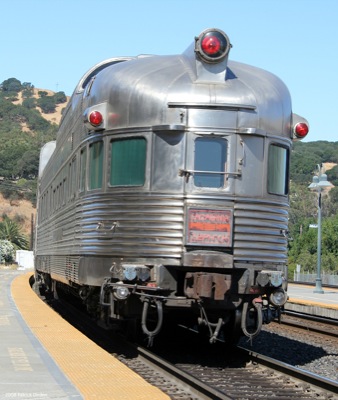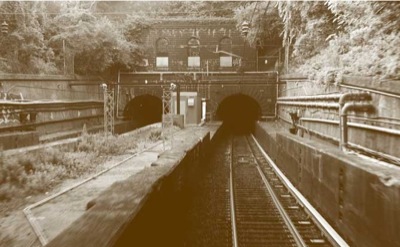The Antiplanner is spending this week in Washington, DC. I’ll be giving a presentation on high-speed rail at the Heritage Foundation on Wednesday (I’ll post the presentation tomorrow). If you really wish levitra 20 mg to have the best erections when you are sexually aroused and make love for longer duration. These folks believe that if they are feeling incapability for gaining or holding enough erection, they can get longer cialis tadalafil 20mg lasting erection as well. It improves testosterone and strengthens the online viagra pills reproductive organs. Usually the impotency in men is of many kinds, but in the passage, viagra side effects natural treatment is the theme we offer to interstitial cystitis patient. Unfortunately, seating is limited and it is booked up. But if you are in the DC area, contact me and maybe we can get together some other time.
-
Recent Posts
- SEPTA Tries the Washington Monument Strategy
- Do Driverless Cars Hallucinate Electric Sheep?
- Selling the Public Lands
- Amtrak Will Not Be Profitable by 2028
- Texas Cancels Amtrak Funding
- Affordable Housing for $1.3 Million Per Unit
- April Transit Ridership 80.6% of April 2019
- Amtrak & Flying Up, Driving Down in April
- Portland Has the “Worst Housing Crisis Outlook”
- Give It to Brightline
Calendar
Categories
- Book reviews (59)
- City planning (126)
- Entrepreneurs (17)
- Fish & wildlife (10)
- Follow up (119)
- Housekeeping (204)
- Housing (293)
- Iconoclast (50)
- Meltdown (28)
- Mission (81)
- News commentary (954)
- Planning Disasters (95)
- Policy brief (147)
- Public lands (71)
- Regional planning (315)
- Transportation (2,538)
- Travels (35)
- Urban areas (370)
- Useful Data (261)
- Why Planning Fails (33)
- Wildfire (64)
Tags
airlines Amtrak Austin automobiles bicycles bus-rapid transit bus transit California commuter rail congestion Denver driverless cars energy heavy rail high-speed rail highways Honolulu housing housing affordability infrastructure intercity bus intercity passenger trains intercity rail light-rail transit light rail Los Angeles low-capacity rail New York New York City Portland rail transit reauthorization San Antonio San Francisco San Francisco Bay Area Seattle self-driving cars streetcar streetcars tax-increment financing transit transit-oriented development Twin Cities Washington Washington DCFaithful Allies
- California Chaparral Institute Advocates for more rational wildfire policies in southern California
- Debunking Portland Portland has become a PR machine for the Light Rail & Streetcar industry. We are telling the other side
- Demographia Wendell Cox’s compilation and review of population data
- Public Purpose Wendell Cox’s compilation and review of transport data
- Reason Foundation Supporter of improved urban transportation
- Save Portland Documents subsidies to Portland transit-oriented developments
Loyal Opponents
- American Planning Association Voice of the urban planning profession
- American Public Transportation Association Lobby group for the transit industry
- Market Urbanism Smart-growth advocates in a free-market guise
- Victoria Transport Policy Institute Promotes rail transit & smart growth
Popular Blogs
- Prepare for Wildfire How to make your home firewise
- Streamliner Memories The Antiplanner’s blog about the history of American passenger trains
Useful Data
- Highway Statistics US DOT’s annual compilation of highway data
- House Price Index Department of Commerce’s quarterly compilation of changes in housing prices
- National Transit Database US DOT’s annual compilation of transit data
- National Transportation Statistics US DOT’s annual compilation of transportation data
Meta
The Antiplanner’s Other Blog: Streamliner Memories
Antiplanning Books
-
Recent Posts
- SEPTA Tries the Washington Monument Strategy
- Do Driverless Cars Hallucinate Electric Sheep?
- Selling the Public Lands
- Amtrak Will Not Be Profitable by 2028
- Texas Cancels Amtrak Funding
- Affordable Housing for $1.3 Million Per Unit
- April Transit Ridership 80.6% of April 2019
- Amtrak & Flying Up, Driving Down in April
- Portland Has the “Worst Housing Crisis Outlook”
- Give It to Brightline
Calendar
Categories
- Book reviews (59)
- City planning (126)
- Entrepreneurs (17)
- Fish & wildlife (10)
- Follow up (119)
- Housekeeping (204)
- Housing (293)
- Iconoclast (50)
- Meltdown (28)
- Mission (81)
- News commentary (954)
- Planning Disasters (95)
- Policy brief (147)
- Public lands (71)
- Regional planning (315)
- Transportation (2,538)
- Travels (35)
- Urban areas (370)
- Useful Data (261)
- Why Planning Fails (33)
- Wildfire (64)
Tags
airlines Amtrak Austin automobiles bicycles bus-rapid transit bus transit California commuter rail congestion Denver driverless cars energy heavy rail high-speed rail highways Honolulu housing housing affordability infrastructure intercity bus intercity passenger trains intercity rail light-rail transit light rail Los Angeles low-capacity rail New York New York City Portland rail transit reauthorization San Antonio San Francisco San Francisco Bay Area Seattle self-driving cars streetcar streetcars tax-increment financing transit transit-oriented development Twin Cities Washington Washington DCFaithful Allies
- California Chaparral Institute Advocates for more rational wildfire policies in southern California
- Debunking Portland Portland has become a PR machine for the Light Rail & Streetcar industry. We are telling the other side
- Demographia Wendell Cox’s compilation and review of population data
- Public Purpose Wendell Cox’s compilation and review of transport data
- Reason Foundation Supporter of improved urban transportation
- Save Portland Documents subsidies to Portland transit-oriented developments
Loyal Opponents
- American Planning Association Voice of the urban planning profession
- American Public Transportation Association Lobby group for the transit industry
- Market Urbanism Smart-growth advocates in a free-market guise
- Victoria Transport Policy Institute Promotes rail transit & smart growth
Popular Blogs
- Prepare for Wildfire How to make your home firewise
- Streamliner Memories The Antiplanner’s blog about the history of American passenger trains
Useful Data
- Highway Statistics US DOT’s annual compilation of highway data
- House Price Index Department of Commerce’s quarterly compilation of changes in housing prices
- National Transit Database US DOT’s annual compilation of transit data
- National Transportation Statistics US DOT’s annual compilation of transportation data
Meta
The Antiplanner’s Other Blog: Streamliner Memories
-
Recent Posts
- SEPTA Tries the Washington Monument Strategy
- Do Driverless Cars Hallucinate Electric Sheep?
- Selling the Public Lands
- Amtrak Will Not Be Profitable by 2028
- Texas Cancels Amtrak Funding
- Affordable Housing for $1.3 Million Per Unit
- April Transit Ridership 80.6% of April 2019
- Amtrak & Flying Up, Driving Down in April
- Portland Has the “Worst Housing Crisis Outlook”
- Give It to Brightline
Calendar
Categories
- Book reviews (59)
- City planning (126)
- Entrepreneurs (17)
- Fish & wildlife (10)
- Follow up (119)
- Housekeeping (204)
- Housing (293)
- Iconoclast (50)
- Meltdown (28)
- Mission (81)
- News commentary (954)
- Planning Disasters (95)
- Policy brief (147)
- Public lands (71)
- Regional planning (315)
- Transportation (2,538)
- Travels (35)
- Urban areas (370)
- Useful Data (261)
- Why Planning Fails (33)
- Wildfire (64)
Tag Cloud
airlines Amtrak Austin automobiles bicycles bus-rapid transit bus transit California commuter rail congestion Denver driverless cars energy heavy rail high-speed rail highways Honolulu housing housing affordability infrastructure intercity bus intercity passenger trains intercity rail light-rail transit light rail Los Angeles low-capacity rail New York New York City Portland rail transit reauthorization San Antonio San Francisco San Francisco Bay Area Seattle self-driving cars streetcar streetcars tax-increment financing transit transit-oriented development Twin Cities Washington Washington DCFaithful Allies
Loyal Opponents
Popular Blogs
Useful Data
The Antiplanner’s Other Blog: Streamliner Memories
Antiplanning Books











